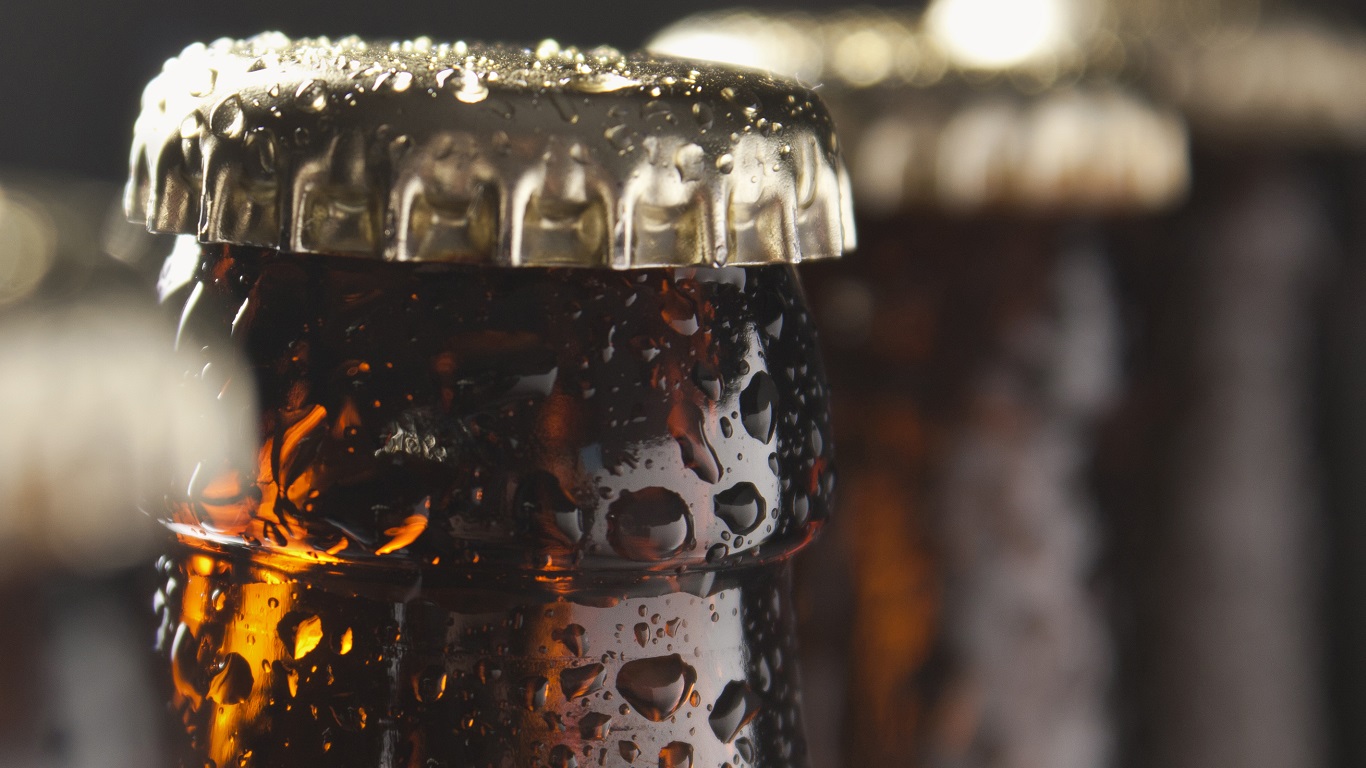Companies and Brands
7 Beverage Giants Expected to Thrive on Growing Global Demand

Published:
Last Updated:

The global alcoholic beverages market is “expected to reach $1,864.2 billion by 2026,” according to the latest Alcoholic Beverages: Global Market Outlook report from ResearchAndMarkets.com. That would represent a compound annual growth rate of 3.9% from the “$1,324.1 billion in 2017.”
High growth in emerging economies (particularly India and China), high disposable income and rising spending on new entertainment options are among the factors said to be propelling the market growth, offsetting such factors growing demand for non-alcoholic beverages such as energy drinks, as well as the high cost of premium and super-premium products. Beer is the most consumed alcoholic drink across the globe, and demand for craft beer is still on the rise.
While some of the biggest brewers and distributors may be struggling these days, by and large, Wall Street analysts expect to see solid to strong earnings growth from them over the next few years.
Anheuser-Busch InBev S.A./N.V. (NYSE: BUD) is expected to have earnings per share (EPS) growth of more than 11% over the next five years, and it has a hefty dividend of about 5%. However, revenue from its flagship brands declined 5% in the second quarter. The share price is down about 13% year to date, but analysts on average still recommend buying shares.
Boston Beer Co. Inc. (NYSE: SAM) is expected to have EPS growth of more than 12% over the next five years, and it has an estimated return on investment of over 18%. But it did lower earnings estimates in its most recent quarterly report, in part due to rising costs. The share price is up more than 64% year to date, but analysts recommend holding shares.
Brown-Forman Corp.’s (NYSE: BF-B) EPS growth over the next five years is expected to be about 10%, and it’s estimated return on investment is pegged at more than 20%. The company’s president passed away earlier this summer, and the next earnings report is due in the coming week. The share price is around 3% lower year to date, and analysts recommend holding shares.
Constellation Brands Inc. (NYSE: STZ) is expected to have EPS growth over the next five years of around 12%, though that would be a slowdown from the nearly 37% growth in the past five years. The company took a stake in a marijuana grower recently, part of what seems a growing trend to combine the two imbibables. Year to date, the share price is more than 9% lower. The consensus recommendation is to buy shares.
Craft Brew Alliance Inc.’s (NASDAQ: BREW) EPS growth over the next five years is anticipated to be almost 34%, but the forward price-to-earnings ratio is more than 37. The company has handily topped EPS estimates in recent quarters. But the share price is less than 2% higher than at the beginning of the year. And the consensus recommendation to buy shares is weak.
Diageo PLC (NYSE: DEO) is forecast to have EPS growth of about 7% over the next five years, compared with less than 2% in the past five years. Earlier this summer, Argus cited Diageo’s strong brands, leading position in many categories and a relatively low-cost structure, and Goldman Sachs upgraded the stock. The share price is down more than 3% year to date, and the consensus recommendation is Strong Buy.
Molson Coors Brewing Co.’s (NYSE: TAP) EPS growth over the next five years is forecast at more than 7%. Plus, the dividend yield is around 2.4%. This company likewise is looking to marijuana to expand its footprint. The stock is trading around 17% lower than at the beginning of the year, yet analysts on average recommend buying the shares.
The average American spends $17,274 on debit cards a year, and it’s a HUGE mistake. First, debit cards don’t have the same fraud protections as credit cards. Once your money is gone, it’s gone. But more importantly you can actually get something back from this spending every time you swipe.
Issuers are handing out wild bonuses right now. With some you can earn up to 5% back on every purchase. That’s like getting a 5% discount on everything you buy!
Our top pick is kind of hard to imagine. Not only does it pay up to 5% back, it also includes a $200 cash back reward in the first six months, a 0% intro APR, and…. $0 annual fee. It’s quite literally free money for any one that uses a card regularly. Click here to learn more!
Flywheel Publishing has partnered with CardRatings to provide coverage of credit card products. Flywheel Publishing and CardRatings may receive a commission from card issuers.
Thank you for reading! Have some feedback for us?
Contact the 24/7 Wall St. editorial team.